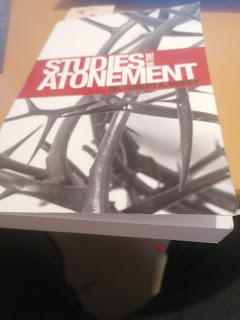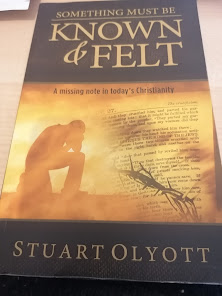Book Review: studies in the Atonement
The Atonement, without a shadow of doubt, happens to be one the most important themes of both scriptures and history. But what does it actually mean? who is it made on behalf of? Well, the answer to that is that it is the sole means to which man is made right before God; or perhaps more correctly, is declared to be right by God. And when a man comes to that cross rods in life of recognising that He is sinner truly; and that nothing he can do will remedy this. He will ask: how can I find peace? The answer is readily available to him in these words: "Seventy weeks are decreed about your people and your holy city, to finish the transgression, to put an end to sin, and to atone for iniquity, to bring in everlasting righteousness, to seal both vision and prophet, and to anoint a most holy place." (Dan. 9:24) That is the only way through the work of the prince.
In this work, Dr Bob Morey sets out to show the greatness of the atonement, and he does so, by providing what is a common rundown of the elements involved (it can be found in John Murray's excellent work "redemption accomplished and applied); however, this work is a much more expanded treatment. Why must people read this then? It is completely up to you; but still I recommend it to those who have a desire. Let us take note of the structure of this book.
(1) we have the basis of redemption: the atonement. He provides 5 chapter on this matter. a) guiding principles. b) the necessity of the atonement. c) the nature of the atonement. d) the perfection of the atonement e) the extent of the atonement. On page 17 we have the first principle: the doctrine of the atonement is exclusively a subject of special revelation, and thus we are entirely dependant upon the scriptures. which he tells us that "Christianity is unique and singular in its concept of the atonement. We will search history in vain to find another religion which developed the concept of God becoming a man to die as the sinners substitute." (pg.17)
(2) we have the application of the atonement. He provides us with 11 chapters on the matter which go through each doctrine of the faith from our union with Christ to our preservation and perseverance in the faith. But it is the 6th and 7th chapter that need to be noted: in the 6th chapter we have a discussion concerning the Trinity which is point v he says: "we can say that the Father did the planning... The Son accomplished it... the Spirit is the one who applies it." (pg.111) then in the seventh chapter we see the 4th principle: the necessity of each doctrine being connected together: "one element is never said to be in isolation from the other elements in the process of salvation. it is simply unscriptural." (Pg.118) (3) Objections to the atonement answered. this chapter the final 3 chapters and an appendix.
This is one work that can provide a lot of great insight on many matters; therefore, I warmly recommend it.

